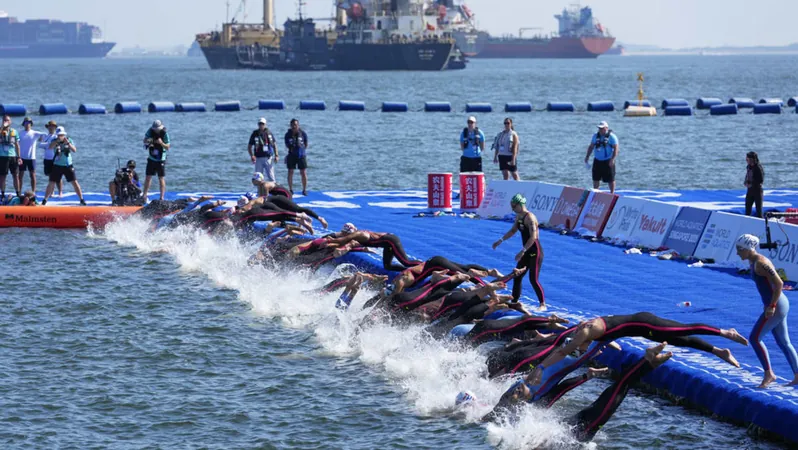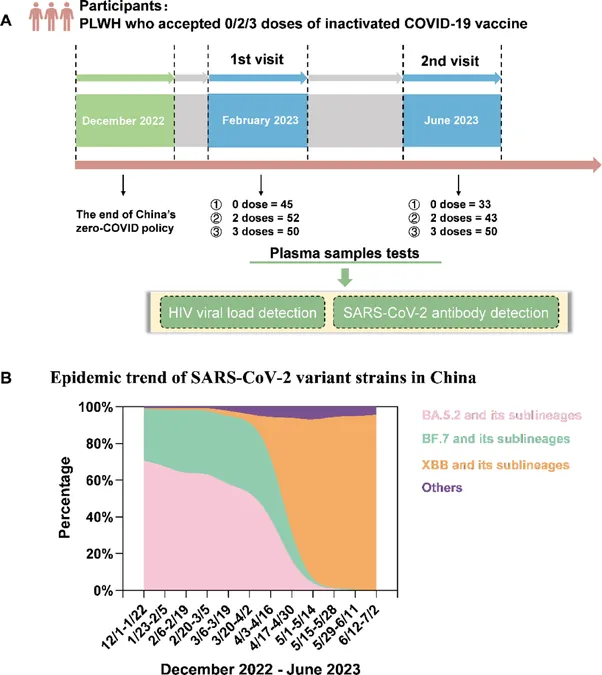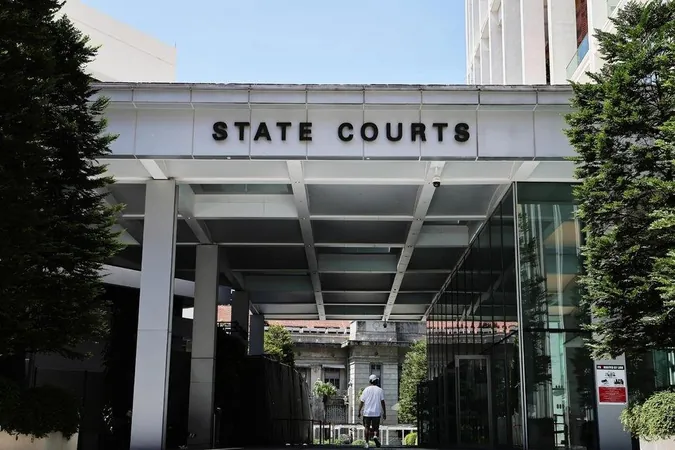
Can You Swim Safely at Sentosa? Here's What You Need to Know After E. Coli Concerns!
2025-07-16
Author: Wei
Swimming at Sentosa: What’s the Current Situation?
Sentosa Island recently faced scrutiny when open water swimming races at the World Aquatics Championships were postponed twice due to alarming E. coli levels. But after thorough assessments, the races finally went ahead and raised the question: Is it safe to swim at Sentosa?
Understanding E. coli: The Bacteria Behind the Worry
E. coli, short for Escherichia coli, is a bacteria that typically resides in our intestines without causing harm. However, certain pathogenic strains can lead to serious health issues, including abdominal cramps and severe infections, particularly in vulnerable populations like young children and the elderly. Recent viral claims regarding E. coli contamination in Singapore's food have added to the public's concern.
How Does E. coli End Up in Our Waters?
E. coli contamination can arise from various sources including heavy rainfall, faulty sewer systems, or improper waste disposal. Even animals can contribute to bacterial levels in the sea. With potential rainstorms washing debris and waste into marine environments, the presence of E. coli becomes a significant concern for safe swimming.
Water Quality Standards: What Are They?
To ensure the safety of swimming, governing bodies like World Aquatics set strict water quality standards based on guidelines from organizations such as the WHO. Only sea water with fewer than 250 E. coli units per 100ml is deemed 'excellent,' while counts above 500 are considered unacceptable.
How Does Singapore Monitor Water Quality?
Singapore’s National Environment Agency (NEA) utilizes WHO guidelines to track water quality, focusing primarily on enterococcus levels for marine assessments. The latest updates show that Sentosa's beaches fall within a safe range, with regular monitoring keeping public safety top of mind.
Is It Safe to Swim at Sentosa Right Now?
Absolutely! NEA’s monitoring indicates that water quality at Sentosa’s beaches is normal, with E. coli levels recorded at low counts—far below the threshold for concern. The recent tests by World Aquatics also confirmed that water quality is in the 'good' to 'excellent' range, reassuring beachgoers.
Best Practices for Beachgoers
While the swimming situation at Sentosa appears safe, it's prudent for beachgoers to avoid swimming after heavy rainfall and to steer clear of water with ongoing advisories about high bacterial levels. Additionally, those with open wounds or skin infections should think twice about swimming. Keeping safe ensures everyone can enjoy the beautiful waters of Sentosa!
Stay Informed and Safe!
The NEA remains committed to regular updates and monitoring of both E. coli and enterococcus levels. Current assessments show everything is looking good, but staying informed will help ensure a fun and safe time at the beach!



 Brasil (PT)
Brasil (PT)
 Canada (EN)
Canada (EN)
 Chile (ES)
Chile (ES)
 Česko (CS)
Česko (CS)
 대한민국 (KO)
대한민국 (KO)
 España (ES)
España (ES)
 France (FR)
France (FR)
 Hong Kong (EN)
Hong Kong (EN)
 Italia (IT)
Italia (IT)
 日本 (JA)
日本 (JA)
 Magyarország (HU)
Magyarország (HU)
 Norge (NO)
Norge (NO)
 Polska (PL)
Polska (PL)
 Schweiz (DE)
Schweiz (DE)
 Singapore (EN)
Singapore (EN)
 Sverige (SV)
Sverige (SV)
 Suomi (FI)
Suomi (FI)
 Türkiye (TR)
Türkiye (TR)
 الإمارات العربية المتحدة (AR)
الإمارات العربية المتحدة (AR)